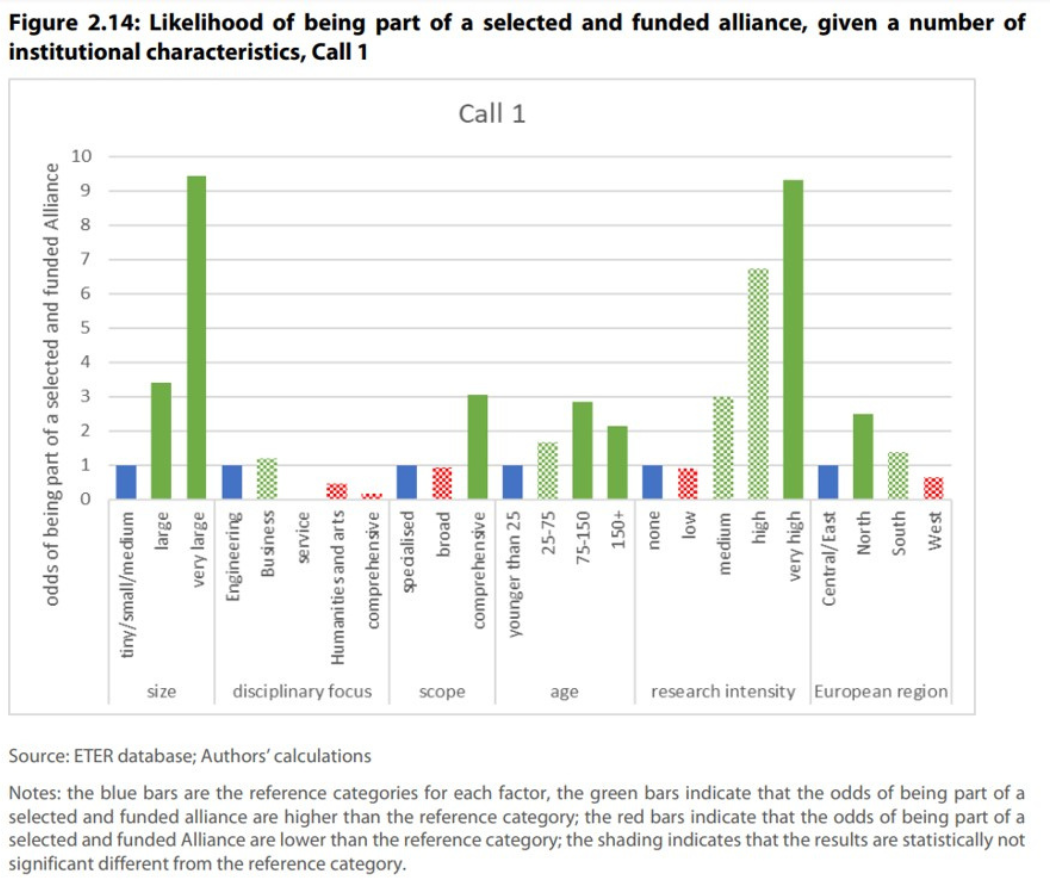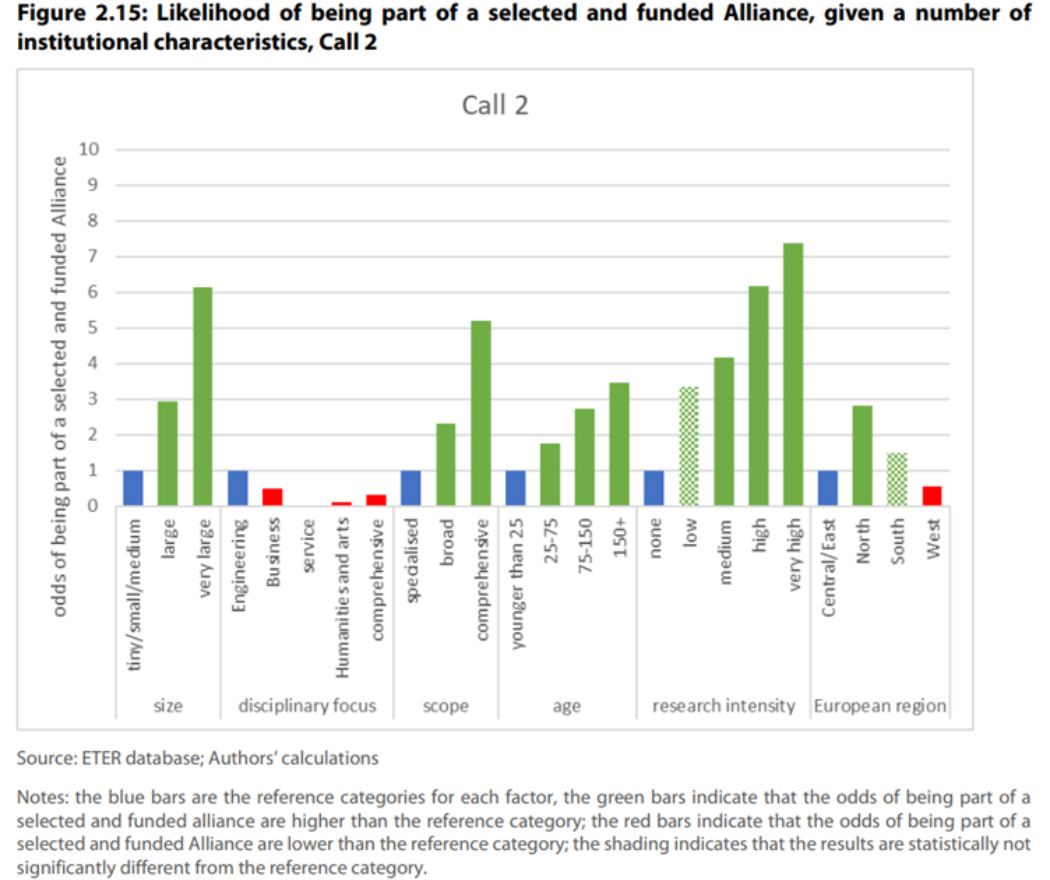
Very large and research-intensive universities are more likely to be selected and funded as part of the European University Alliance initiative, according to a new report.
In the first alliances call, launched in 2019, universities that were more likely to get selected also tended to be over 75 years old and offer programmes in more than eight disciplines.
Geography also mattered – to an extent – with institutions in northern and southern Europe most likely to hop on board of a successful university alliance.
What didn’t matter? The distribution of students over programmes in different disciplines. That is, universities with a large percentage of engineering students were not more likely to get funded than humanities-heavy ones.
In the second call for proposals, launched in 2020, the trends were similar, but disciplinary focus gained more ground, with engineering-heavy universities more likely to be part of a selected and funded alliance. Europe’s oldest universities, over 150 years old, were also more likely to secure funding.
After three rounds of calls, the EU now funds 44 transnational university alliances involving 340 higher education institutions in 31 countries, which are testing out new approaches to cooperation.
The fourth Erasmus+ call for alliances is currently open with a budget of €387.2 million.






 A unique international forum for public research organisations and companies to connect their external engagement with strategic interests around their R&D system.
A unique international forum for public research organisations and companies to connect their external engagement with strategic interests around their R&D system.